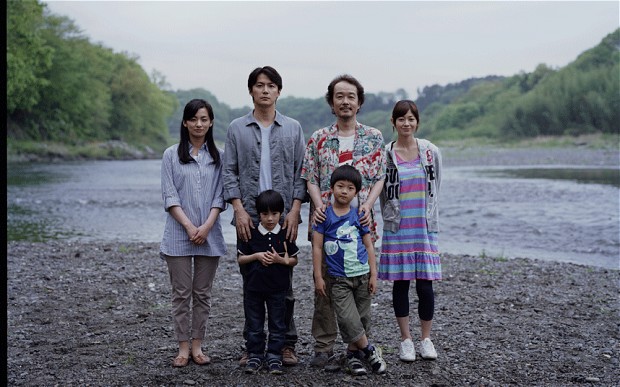The toast of Cannes 2013, Hirokazu Koreeda’s moving drama is the Prince and the Pauper story relocated to modern Japan. The difference here is that the director concentrates on the father’s reactions. Two young couples realise, when one of their six-year-olds has a DNA test, that the children have accidentally been switched at birth in the hospital. It’s a plotline from one of those handwringing weepies of the 1940s. While one family are uptight, yuppie tiger parents giving their tiny son piano lessons, the other family have no money but much more fun.
There are remarkably sensitive performances all round (even the child actors), seen in the parent’s reluctance to swap their son, ‘We wouldn’t even do that to a pet,’ implores one. Masahura Fukuyama‘s portrayal of distant father Ryota Nonomiya is played with such a gangster-like coldness it is likely to gut-wrenchingly resonate with those who have experienced something similar. While a child’s cutting remark of ‘you’re not my daddy’, shows how even small comments can inflict great emotional damage. The sensitive characterisation of the main players and nature/nurture subject matter never slips into soap territory and the story is all the better for it, practicing clear eyed restraint from Hollywood’s brand of schmaltz.
Japan, so often depicted with pink cherry blossom, neon or anime Day-glo, has never looked greyer; the dinginess counterpointed with the moving Chopin-esque score by Takeshi Matsubara, Junichi Matsumoto and Takashi Mori. A scene where children play with oddly shaped, inflated bags that float in the air sums up the fragility of innocence. How you treat the child will determine the man. As much as anything the film is an echo of the changing face of an economically troubled Japan where old certainties are threatened.
